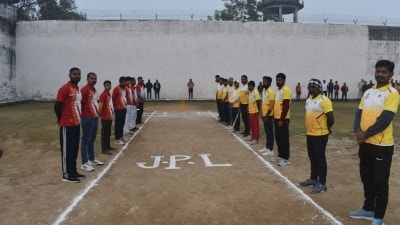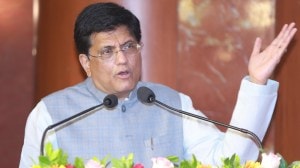Another Shah Bano?
It8217;s the same old sickening Shah Bano scenario again. A poor Muslim woman in a terrible domestic crisis, being condemned to a worse fat...

It8217;s the same old sickening Shah Bano scenario again. A poor Muslim woman in a terrible domestic crisis, being condemned to a worse fate by her community8217;s male leaders citing the Quran; a cynical political establishment which knows that Muslim men control their women8217;s votes; a media hysterical at the prospect of putting 8216;mullahs8217; in the dock; a gleeful BJP suddenly concerned about Muslim women, thinking the world will forget its silence when its cadres gang-raped them just three years ago; a few brave Muslim voices speaking out against the maulvis; and a deafening silence by the majority of Muslims, despite their belief that their faith does not sanction the outrage ordered by the Dar ul Ulum Deoband. No wonder Imrana, like Shah Bano, has accepted defeat and said she will submit to the inhuman fatwa.
Twenty years after Shah Bano, will Imrana be the catalyst for the BJP8217;s comeback? Yes, if Muslims continue to keep quiet.
For sure, this time, the voices speaking out publicly against Deoband are not just the usual suspects: 8216;progressive8217; Muslims who prefer a liberal interpretation of the Quran, and believe that Islam treats women as equals; and Muslim women who fight for women8217;s rights and reject any kind of religious authority in secular matters. It8217;s easy for the community leaders to point fingers at the apparent 8216;unIslamic8217; lifestyles of these critics and question their credibility as Muslims.
This time, a major shift has taken place: orthodox Muslims, who believe the Quran must guide all actions, are rejecting the interpretation of the country8217;s best-known seminary. More significant than the dissenting voices of some members of the All India Muslim Personal Law Board and Shia maulvis have been the angry voices of burqa-clad women. Women who accept the supremacy of the Shariat have also rejected the Deoband ruling, be it the All India Muslim Women8217;s Personal Law Board in Lucknow; advocate Neelofar Akhtar and Dr Shehnaz Shaikh in Mumbai, known for their knowledge of the Quran; or Shaikh Nowhera, an aalima who runs a madarsa for women in Tirupati. These women quote from the Quran to prove the Deoband fatwa wrong, and challenge the muftis to cite its basis in the Quran and Hadees.
It8217;s difficult to question the Islamic credentials of all these Muslims. Perhaps that is why the Board has now propounded the theory 8212; without speaking to Imrana 8212; that her father-in-law couldn8217;t have raped her.
- 01
- 02
- 03
- 04
- 05































